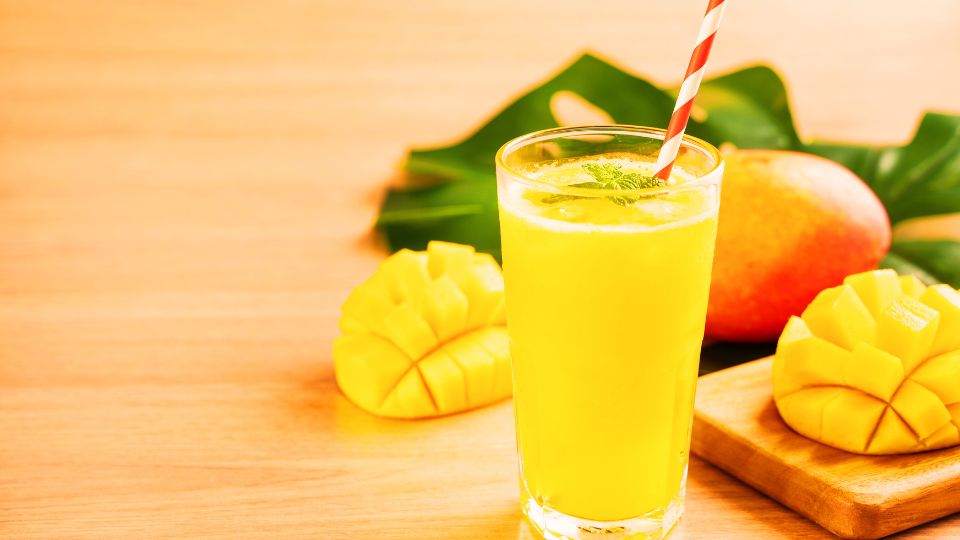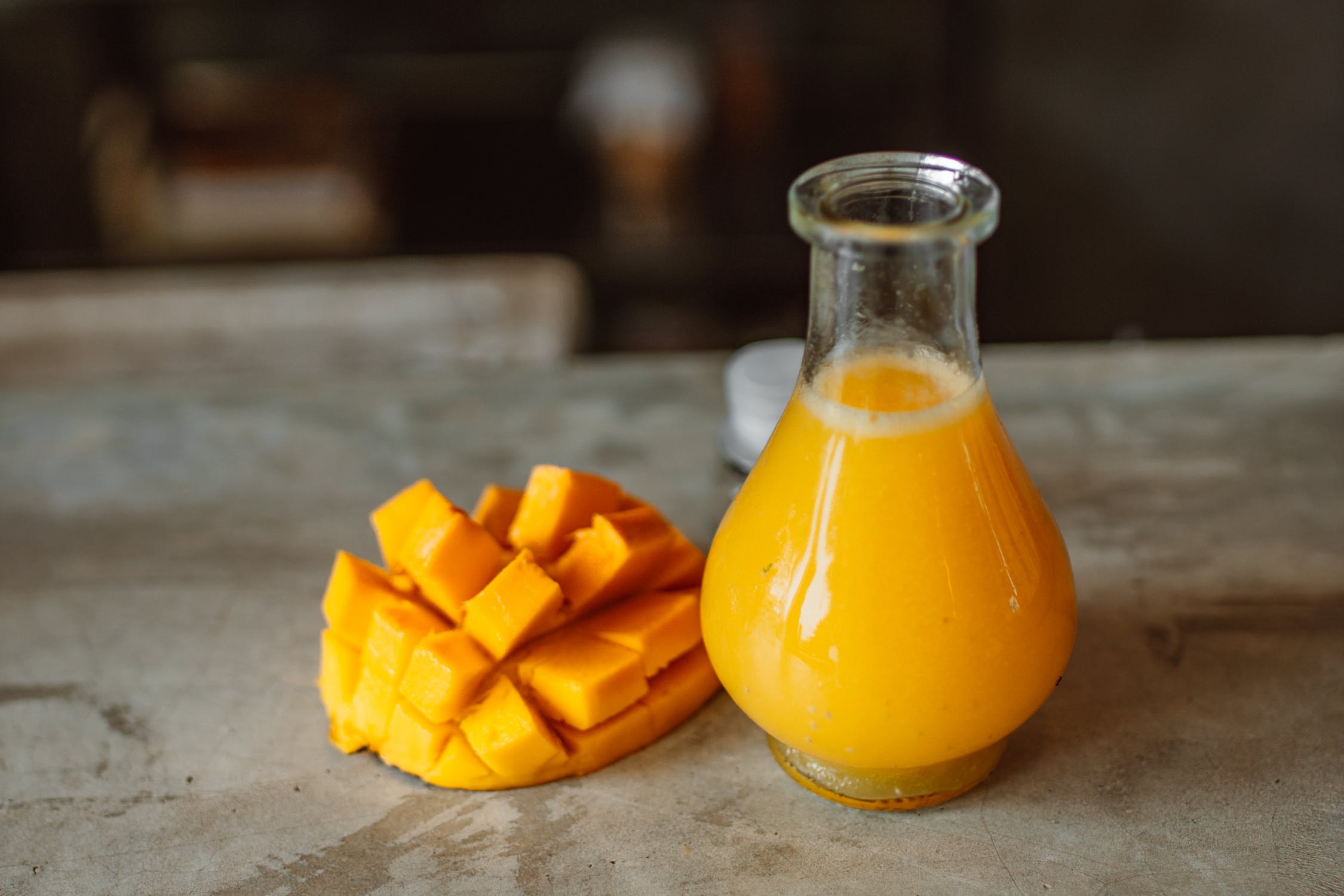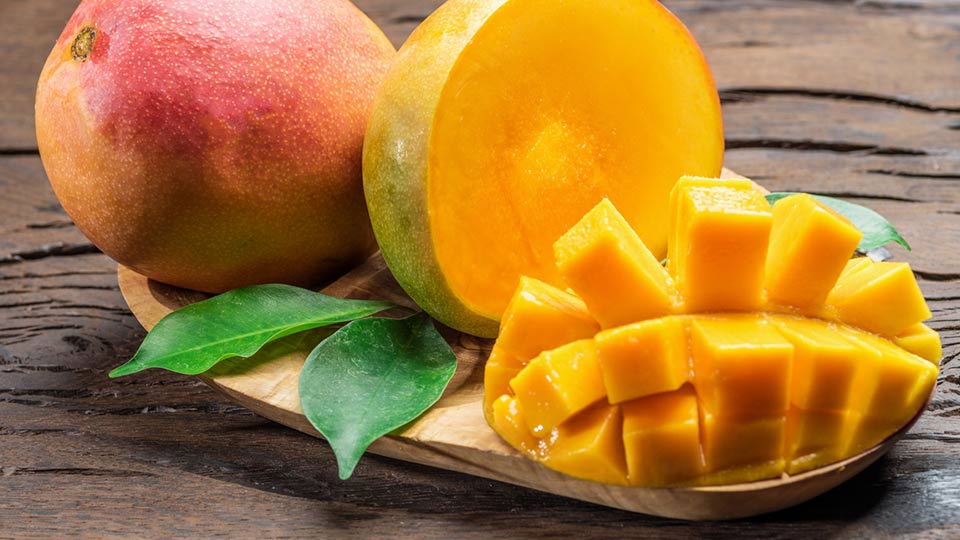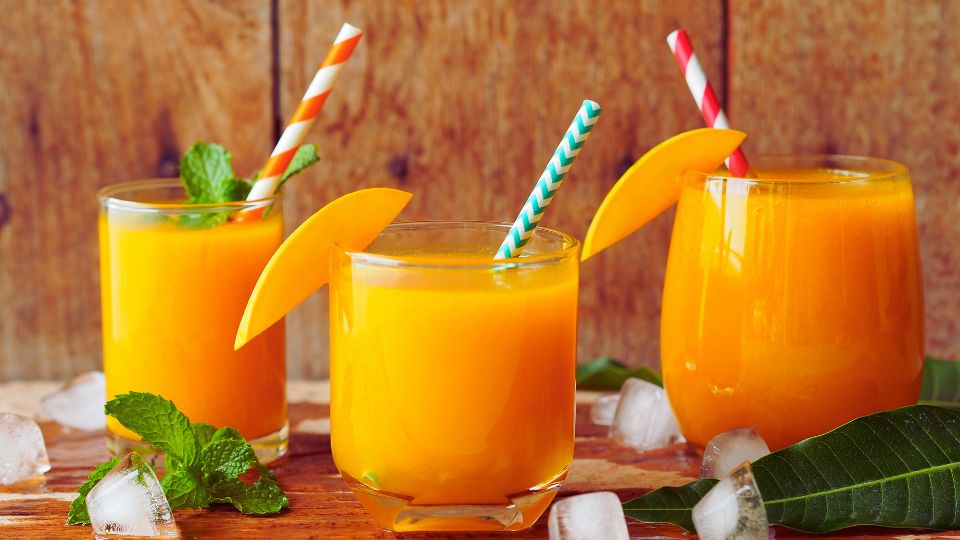Diabetes is a chronic disease that affects millions of people worldwide. People with diabetes have to be extra cautious about what they eat and drink, as certain foods and beverages can cause spikes in blood sugar levels. One such beverage is mango juice.
Mango juice is a popular and delicious drink that is enjoyed by many, but is it good for individuals with diabetes? Mango juice can be consumed in moderation as part of a balanced diet plan for individuals with diabetes, but it is important to be cautious due to its high sugar content.
In this article, we will explore the potential benefits and drawbacks of consuming mango juice for people with diabetes.
Nutritional Content of Mango Juice
Mango juice is a rich source of vitamins, minerals, and other nutrients that are essential for maintaining good health. A cup of mango juice (240 ml) typically contains:
- Calories: 128
- Carbohydrates: 31 grams
- Fiber: 1.8 grams
- Protein: 1 gram
- Fat: 0.6 grams
- Vitamin C: 67% of the daily value (DV)
- Vitamin A: 25% of the DV
- Folate: 18% of the DV
- Potassium: 8% of the DV
- Magnesium: 6% of the DV
For individuals with diabetes, it is essential to monitor their blood sugar levels and consume foods and beverages that will not cause a significant increase. Mango juice contains a high amount of carbohydrates and sugar, which can increase blood sugar levels. However, the presence of fiber in mango juice can slow down the absorption of sugar into the bloodstream, which may prevent a sudden spike in blood sugar levels.
Mango juice also contains a low glycemic index (GI) score of 41, which means it is less likely to cause a rapid increase in blood sugar levels. The glycemic index is a measure of how quickly a food raises blood sugar levels after consumption.
Note that individuals with diabetes should consume mango juice in moderation and as part of a balanced and varied diet. They should also monitor their blood sugar levels closely and consult with a healthcare provider before making any significant changes to their diet.
Glycemic Index of Mango Juice
The glycemic index (GI) is a measure of how quickly a food raises your blood sugar levels after you eat it. Foods with a high GI cause a rapid spike in blood sugar, followed by a sharp drop. This can lead to hunger, cravings, and mood swings. Foods with a low GI release sugar more slowly and steadily into your bloodstream, keeping you satisfied and energized for longer.
The GI of foods is influenced by many factors, such as the type and amount of carbohydrates, the presence of fiber, protein, fat, and other nutrients, the ripeness of fruits, the cooking method, and the portion size. The GI scale ranges from 0 to 100, with pure glucose being 100. Generally, foods with a GI of 55 or less are considered low, foods with a GI of 56 to 69 are considered medium, and foods with a GI of 70 or more are considered high.
What is the glycemic index of mango juice?
Mangoes are delicious tropical fruits that are rich in vitamin C, vitamin A, folate, copper, potassium, and antioxidants. They also contain natural sugars, such as fructose and sucrose, which provide energy and sweetness. However, these sugars can also affect your blood sugar levels depending on how much and how often you consume them.
According to various sources, the average GI of fresh mango is around 55, which is a low GI bordering on moderate. However, this value can vary depending on the ripeness and variety of the mango. The riper and sweeter the mango, the higher its GI.
Mango juice is different from fresh mango because it usually contains more sugar and less fiber. Fiber helps slow down the digestion and absorption of sugar, which lowers the GI of foods. When you juice a fruit, you remove most of its fiber and concentrate its sugar. Therefore, mango juice has a higher GI than fresh mango.
The exact GI of mango juice depends on how it is made and what ingredients are added to it. Some commercial mango juices may have added sugar or other fruit juices that increase their GI. For example, one study found that a commercial mango juice had a GI of 80, which is high. On the other hand, some homemade mango juices may have less sugar or more water or ice that dilute their GI. For example, another study found that a homemade mango juice had a GI of 41, which is low.
How does mango juice affect your blood sugar levels?
The effect of mango juice on your blood sugar levels depends on several factors, such as how much you drink, what else you eat or drink with it, your overall diet and lifestyle, and your individual sensitivity to carbohydrates.
If you drink a small amount of mango juice occasionally as part of a balanced diet that includes plenty of fiber, protein, healthy fats, and other low-GI foods, it may not have a significant impact on your blood sugar levels. In fact, some studies suggest that mangoes may have beneficial effects on blood sugar regulation and cholesterol levels in people with diabetes or obesity.
However, if you drink large amounts of mango juice frequently or on an empty stomach or with other high-GI foods or drinks, it may cause spikes and dips in your blood sugar levels that can affect your mood, energy, appetite, and health. This can increase your risk of developing type 2 diabetes or other metabolic disorders over time.
Therefore, it is important to be mindful of how much and how often you drink mango juice and what you pair it with. A good rule of thumb is to limit your intake of fruit juices to no more than one cup (240 ml) per day and choose those that are 100% pure and unsweetened. You can also dilute your juice with water or sparkling water to reduce its sugar content and GI. Alternatively, you can eat fresh or frozen mango instead of drinking its juice to get more fiber and less sugar per serving.
Benefits of Mango Juice for Diabetics
One of the key nutrients in mango juice that may be beneficial for people with diabetes is fiber. Fiber is an essential part of a healthy diet, and it can help to slow down the absorption of sugar in the bloodstream. This can help to prevent spikes in blood sugar levels that can be harmful for people with diabetes. Mangoes are also a good source of vitamin C, which can help to boost the immune system and protect against oxidative stress.
In addition to fiber and vitamin C, mangoes contain a number of other nutrients that may be helpful for people with diabetes. For example, they are rich in beta-carotene, which is an antioxidant that can help to protect against inflammation and damage to the body’s cells. Mangoes also contain magnesium, which is important for regulating blood sugar levels and maintaining healthy nerve and muscle function.
So how can you incorporate mango juice into your diabetic diet plan? One option is to enjoy it as a treat in moderation, perhaps as a small glass with a meal or as a snack. Alternatively, you could try blending mango juice with other fruits and vegetables to create a nutrient-packed smoothie. Just be sure to check the label and choose a juice that is low in added sugars and calories.
Precautions and Considerations
Moderation is Key
Consuming mango juice in moderation is essential for maintaining good health. Although mango juice can be beneficial, overconsumption can have negative consequences. Therefore, it’s vital to be mindful of our overall sugar and calorie intake when consuming mango juice or any other food and beverage.
Considerations for Individuals with Medical Conditions
Individuals with certain medical conditions, such as diabetes, need to be cautious when consuming mango juice. Monitoring blood sugar levels and being mindful of sugar intake is crucial. Mango juice should be consumed in moderation by individuals with diabetes as part of a balanced diet plan.
For individuals with digestive issues or food allergies, consuming mango juice can be problematic. Mango juice contains high amounts of fructose, which some people may have difficulty digesting. Additionally, some individuals may be allergic to mangoes or other ingredients in the juice. Consulting a healthcare professional before consuming mango juice is essential to prevent any potential digestive issues or food allergies.
Choose the Right Type of Mango Juice
When selecting mango juice, it’s crucial to opt for all-natural options that are free from added sugars or artificial ingredients. Many store-bought juices contain added sugars, preservatives, and other additives that can be harmful to our health. Therefore, it’s crucial to read the labels and choose mango juice that is healthy and beneficial for our body.
Conclusion
Mango juice can be a healthy and nutritious beverage for individuals with diabetes, but it should be consumed in moderation and as part of a balanced diet plan. The nutrients found in mango juice, including fiber, vitamins, and minerals, can help manage blood sugar levels and provide essential nutrients for the body. However, mango juice is also high in sugar and calories, which can be harmful to people with diabetes if consumed in excess.
Therefore, individuals with diabetes should be cautious when consuming mango juice and consult with a healthcare professional before doing so. With proper precautions and considerations, mango juice can be a part of a healthy and balanced diet for individuals with diabetes.







